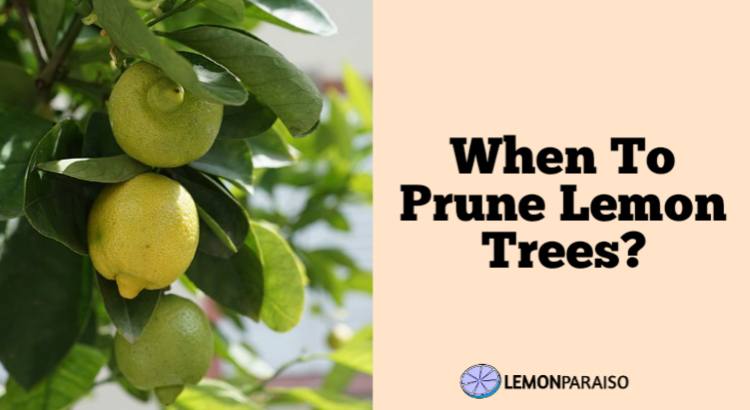Can Lemon Trees Grow In Georgia?

Lemon trees (Citrus limon), with their vibrant yellow fruit and fragrant blossoms, have long captivated gardeners and homeowners alike. Their ability to thrive in various climates and conditions has raised the question: can lemon trees grow in Georgia?
Can Lemon Trees Grow In Georgia?
Lemon trees can indeed grow in Georgia, but their success is contingent upon several factors such as climate, location, and proper care. Georgia’s USDA hardiness zones range from 6b in the northern regions to 9a in the southern areas, offering a variety of growing conditions for citrus trees.
While lemon trees are typically suited for zones 9-11, certain cold-hardy varieties like the Meyer lemon (Citrus x meyeri) and Ponderosa lemon (Citrus x ponderosa) can be grown in zone 8, which covers a significant portion of Georgia.
These lemon tree varieties are more adaptable to temperature fluctuations, allowing them to thrive in Georgia’s climate. Gardeners in the colder regions of the state can also consider growing lemon trees in containers, which can be moved indoors during the coldest months to protect the trees from frost.
What Is The Best Time To Plant Lemon Trees In Georgia?
The best time to plant lemon trees in Georgia is during the early spring or fall, when temperatures are moderate and conditions are conducive to root establishment.
Planting during these seasons allows the tree to acclimate to its environment before facing the extremes of summer heat or winter cold, promoting healthy growth and fruit production in the long run.
What Type Of Soil Do Lemon Trees Need To Grow In Georgia?
Lemon trees in Georgia require well-draining, slightly acidic soil with a pH range of 6.0-6.5. Sandy loam is ideal, as it retains moisture while allowing excess water to drain, preventing root rot.
Adding organic matter like compost or aged manure can improve soil structure and nutrient content, further promoting healthy tree growth.
Can Lemon Trees Be Grown In Containers In Georgia?
Yes, lemon trees can be grown in containers in Georgia, especially for gardeners in colder regions or with limited yard space. Container-grown trees should be planted in well-draining potting mix and placed in a sunny location.
The containers should be large enough to accommodate the tree’s root system, and the trees should be brought indoors during winter months to protect them from freezing temperatures.
Can Lemon Trees Survive The Winter In Georgia?
Lemon trees can survive the winter in Georgia, particularly in the warmer southern regions. Cold-hardy varieties like Meyer and Ponderosa lemons are more adaptable to lower temperatures.
However, in colder northern areas, lemon trees should be grown in containers and brought indoors during winter or provided with adequate frost protection like frost blankets or heat lamps.
How Much Sunlight Do Lemon Trees Need In Georgia?
Lemon trees need at least six to eight hours of direct sunlight daily in Georgia to ensure optimal growth, flowering, and fruit production.
A south or southwest-facing location is ideal for providing sufficient light exposure. Gardeners should also consider protecting the trees from strong winds that could damage their delicate foliage.
What Are The Best Lemon Tree Varieties To Grow In Georgia?
The best lemon tree varieties to grow in Georgia are cold-hardy varieties such as the Meyer lemon and Ponderosa lemon, which can tolerate the state’s temperature fluctuations more effectively.
These varieties are well-suited for Georgia’s climate, providing a better chance of successful growth and fruit production.
How Often Should Lemon Trees Be Watered In Georgia?
Lemon trees in Georgia should be watered regularly to maintain consistently moist, but not soggy, soil. The frequency of watering depends on factors like soil type, weather conditions, and tree size.
Generally, watering once or twice a week during dry periods should suffice, but gardeners should monitor soil moisture and adjust watering schedules accordingly.
What Are The Common Pests And Diseases That Affect Lemon Trees In Georgia?
Common pests that affect lemon trees in Georgia include aphids, spider mites, scale insects, and citrus leaf miners. Diseases to watch out for include citrus canker, root rot, and greasy spot fungus.
Regular monitoring, proper pruning, and maintaining a clean growing environment can help prevent infestations and disease outbreaks.
How Long Does It Take For Lemon Trees To Bear Fruit In Georgia?
Lemon trees typically start bearing fruit in Georgia within three to five years after planting, depending on the variety and growing conditions. Grafted trees tend to produce fruit sooner than those grown from seeds.
Proper care, including sufficient sunlight, watering, and fertilization, can accelerate fruit production and improve overall tree health.
What Are The Ideal Temperature And Humidity Conditions For Lemon Trees In Georgia?
The ideal temperature range for lemon trees in Georgia is between 70-90°F during the day and 55-65°F at night. While cold-hardy varieties can tolerate temperatures as low as 20°F, prolonged exposure to freezing conditions can



